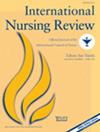Self-Assessment Organisational Readiness Tool (SORT) for Nursing Research Capacity Development: Results of a UK Delphi Study
Abstract
Aim
This Delphi study aimed to develop the Self-assessment Organisational Readiness Tool (SORT), a prototype designed to assess healthcare organisations’ capacity to support nursing engagement in research activities.
Background
Nurses are pivotal to evidence-based healthcare, yet organisational barriers frequently hinder their engagement in research. Existing frameworks often lack the precision needed to evaluate organisational readiness to support nurses in research capacity building, leadership development and digital innovation. This study aims to bridge this gap through the development of the SORT framework.
Methods
A structured Delphi consensus-building process was conducted over three iterative rounds and supplemented by four expert working group workshops. Participants, identified through purposive sampling, included 43 professionals with expertise in research and development, evidence-based practice and clinical and research leadership. Quantitative data were analysed using consensus thresholds (≥70% agreement), while qualitative feedback informed the iterative refinement of the tool.
Findings
Consensus was achieved on 67 statements across five thematic areas: People-centred research, releasing potential, research systems, careers and digitally enabled research. Key items highlighted the importance of skills development, organisational leadership and collaboration with academia and patient/public involvement. Limited consensus in areas such as monitoring progress and digital research highlights the need for further refinement. SORT demonstrated strong face validity, with plans for reliability testing and factor analysis in future work.
Implications for Nursing Practice and Policy
SORT is designed to be used by nursing and R&D leaders, healthcare executives, managers and policymakers to evaluate and improve organisational readiness to support research aiming nurses in healthcare settings. It can inform strategic planning, workforce development and performance benchmarking within healthcare institutions. It will also serve as a guide to individual nurse respondents by increasing their awareness of various initiatives in their organisations that they should know about. SORT provides a practical framework for embedding research within healthcare organisations to support nursing practice. It offers organisations a tool to identify strengths and gaps in research capacity, informing workforce development and infrastructure planning. Policymakers can use SORT to benchmark readiness and align strategies with national objectives. While developed in the UK, SORT has the potential to support global efforts to advance nursing research capacity, as this is the first tool developed specially to measure organisational readiness to support nurses for research and has already generated interest in other countries and professions.
Conclusion
SORT represents a significant step towards fostering a research culture within healthcare organisations. By aligning with the Chief Nursing Officer strategy in the UK context, it supports evidence-based practice and enhances nursing's contribution to healthcare quality and innovation. Future work will focus on validating SORT's reliability and expanding its applicability across diverse healthcare settings.

 求助内容:
求助内容: 应助结果提醒方式:
应助结果提醒方式:


